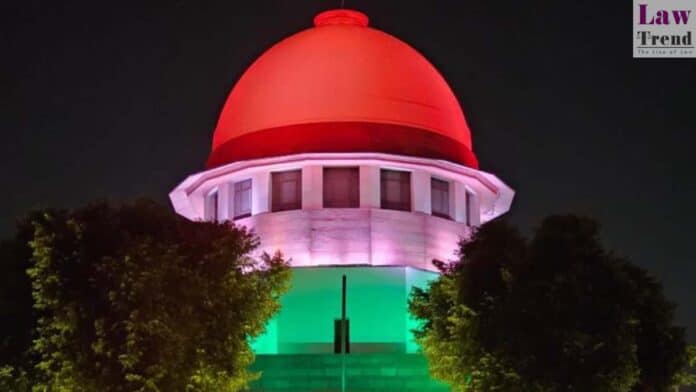In a significant ruling that bolsters the tax department’s stance, the Supreme Court on Thursday endorsed the application of amended provisions in the Income Tax Act post-April 1, 2021. This decision directly impacts the fate of approximately 90,000 reassessment notices, marking a pivotal moment in the ongoing legal interpretations of taxation laws.
The case that led to this landmark ruling involved Ashish Agarwal, setting a precedent that the Taxation and Other Laws (Relaxation & Amendment of Certain Provisions) Act (TOLA) applies to situations beyond the initially specified date. The decision came after various conflicting judgments from high courts across the country, including notable ones like ITO Surat by Gujarat HC, Rajeev Bansal by Allahabad HC, and Siemens vs DCIT by Bombay HC, which were all overturned by the apex court.
Chief Justice DY Chandrachud emphasized the need for clarity in applying the tax laws during these uncertain times, which saw the tax authorities issuing a flurry of reassessment notices under the dual validity of old and new tax regulations due to the COVID-19 pandemic disruptions.
Under the framework that began in April 2021, the Income Tax department has been empowered to scrutinize tax evasions up to 11 years back for amounts exceeding Rs 50 lakh. For sums below this threshold, the look-back period is confined to four years, a significant adjustment from the previous six-year period for undisclosed income over Rs 1 lakh, provided concealment was evident.
The legal confusion stemmed from the temporary extension of old tax regulations during the pandemic, leading to over 10,000 writ petitions challenging the legitimacy of reassessment notices. Taxpayers contended that the old laws had expired with the advent of new legislation and that their extended validity via a circular did not hold against the newly enacted laws.
In a setback for taxpayers, the Supreme Court upheld the validity of all reassessment notices issued after March 31, 2021, utilizing its extraordinary powers under Article 142 of the Constitution. This decision has opened the way for further judicial reviews, especially concerning assessment years from 2013-14 to 2017-18.
Ved Jain, past president of the Institute of Chartered Accountants of India (ICAI), commented on the ruling, “This judgment will have wide ramifications, affecting around 90,000 taxpayers. It underscores the extent of executive powers to extend limitations via executive orders, even post-new legislation.”
Ashish Mehta, partner at Khaitan & Co, Mumbai, noted, “Reassessment notices have been a contentious issue due to frequent changes in laws, timelines, and procedures over the past three years. While the revenue department secured an initial victory, the legal discussions are far from over, and we anticipate further developments that will affect all stakeholders involved.”




